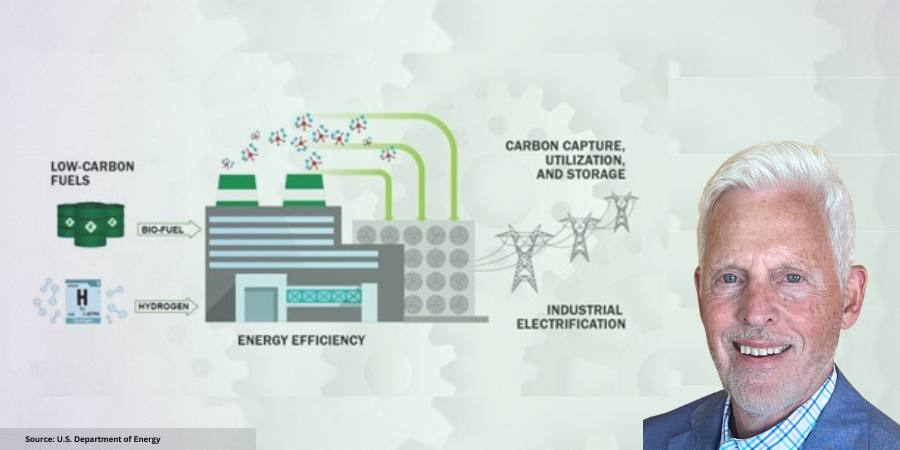 Explore how the shift from globalization to regionalization is making a positive impact for businesses in the manufacturing industry, not only in Europe and the U.S., but also in Mexico, especially in the aerospace and automotive sectors.
Explore how the shift from globalization to regionalization is making a positive impact for businesses in the manufacturing industry, not only in Europe and the U.S., but also in Mexico, especially in the aerospace and automotive sectors.
This article, written by Humberto Ramos Fernández, founder and CEO of HT-MX, first appeared in Heat Treat Today’s May 2021 Induction print edition. Find the digital upload and other past editions here.

Founder and CEO
HT-MX
It’s an interesting time in the Mexican industrial ecosystem, to say the least. It has, of course, been a very abnormal couple of years for obvious reasons such as the pandemic, the oil and gas crisis, and even the aerospace industry problems with the Boeing 737 MAX. However, these events have triggered a shift in the global manufacturing industry away from globalization and into regionalization. US and European OEM companies are realizing that having their suppliers in the same region as opposed to halfway around the world is becoming more and more important as it lowers risks, allows for faster technology transfer, and reduces project implementation times and costs.
All of this helps move the T-MEC* zone, especially Mexico, into a strategic position to take advantage of these opportunities. A heavily industrialized country with over 30 years of complex manufacturing experience, Mexico has the infrastructure to attract and develop its industries during these global manufacturing shifts. A strong workforce including engineers and trained technical population, an industrial culture, and an actively developing supply chain are important components that contribute to Mexico’s strengths.
Regional manufacturing clusters have been developing in Mexico for several decades now, but more recently, there has been a strong push for a fuller, more complete high tech supply chain.
Mexico has several manufacturing hubs with a wide range of industries served, including the aerospace manufacturing hub located in Chihuahua (200 miles south of the Texas border) and the automotive manufacturing hub located in the El Bajío region, both of which have been continuously strengthening their supply chains with certified suppliers.
We must be ready, but we also must be able to communicate that we are ready to help these international companies successfully launch their Mexican initiatives, even in the shape of a joint venture between Mexican and international companies.
These hubs started as maquiladoras, or plants doing simple, but labor-intensive jobs and have slowly evolved into full-blown high-tech operations where aerospace assemblies (landing gears, engines, interiors, bodies, etc.) or fully assembled cars, roll out of the lines on a daily basis. Such evolution, where OEM and Tier 1 operations became more complex, forced the supply chain to start upgrading. This is still happening at the moment, but major gaps in the operation, such as heat treat and surface finish, are now fulfilled. Today you can have a part machined, heat treated, HIPed, surface finished, painted, and assembled without leaving Chihuahua.
A more complete regional manufacturing chain allows our customers to transfer more production lines or develop more products, thus benefiting the entire manufacturing industry. And we, along with many others, are here to help fill historically empty gaps in the manufacturing chain.
So, as a Tier 1 and Tier 2 supplier, secondary process companies in Mexico must be ready to help transition to regional manufacturing; and this transition must be as painless as possible. We must be ready, but we also must be able to communicate that we are ready to help these international companies successfully launch their Mexican initiatives, even in the shape of a joint venture between Mexican and international companies.
The ability to accompany the customer through the development of the manufacturing process, from machining, to heat treating, HIPing, surface finishing, assemblies and to even helping locate local suppliers for complementary processes, is key for Mexican market success.
It is indeed an interesting time here in Mexico. Come and take a look.
*Editor’s note: T-MEC is also known as the United States-Mexico-Canada Agreement or USMCA in the U.S. and in Canada as CUSMA.
About the Author: Humberto Ramos Fernández is a mechanical engineer with a master’s degree in Science and Technology Commercialization. He has over 14 years of industrial experience and is the founder and current CEO of HT-MX, which specializes in NADCAP-certified controlled atmosphere heat treatments for the aerospace, automotive and oil and gas industries. As of 2020, HT-MX became Latin America’s only hot isostatic pressing (HIPing) supplier. With customers ranging from OEMs to Tier 3, Mr. Ramos has ample experience in developing specific, high complexity secondary processes to the highest requirements.
Contact Humberto at humberto@ht-mx.com.




